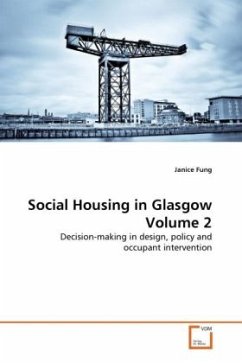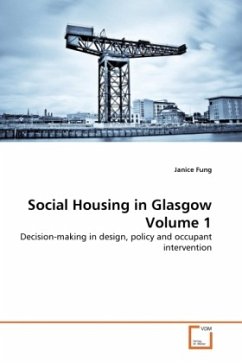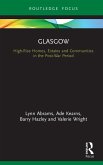In architecture, the intentions behind decisions made in policy, design or by user intervention, even though altruistically conceived, can and frequently do lead to unintended negative consequences (UNCs). The thesis addresses these problems arising from decisions affecting occupants of social housing in Glasgow, United Kingdom. Through a chronological historical review in Volume 1, the work identifies both the instruments of decision-making and the underlying political culture with evidence of UNCs gleaned from archival sources. A series of case studies with varying typologies, histories, and locations are examined respective to successive layers of decision-making in Volume 2. This investigation into Glasgow's social housing sector includes validated sections relating to health and well-being, one aim being to identify whether a feeling of 'hopelessness' relates to the physical home environment resulting from decision-makers.
Bitte wählen Sie Ihr Anliegen aus.
Rechnungen
Retourenschein anfordern
Bestellstatus
Storno








